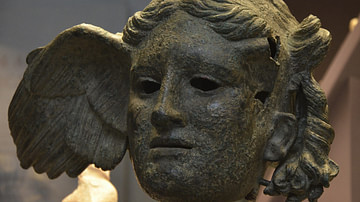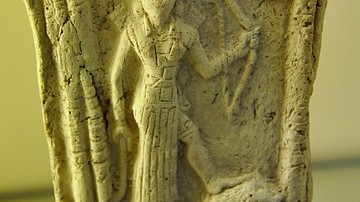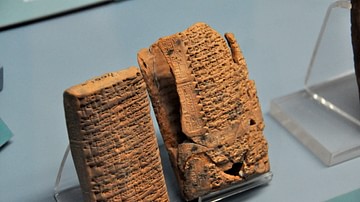Search
Remove Ads
Advertisement
Search Results

Article
The Mesopotamian Pantheon
The gods of the Mesopotamian region were not uniform in name, power, provenance or status in the hierarchy. Mesopotamian culture varied from region to region and, because of this, Marduk should not be regarded as King of the Gods in the same...

Article
Ancient Mesopotamian Beliefs in the Afterlife
Unlike the rich corpus of ancient Egyptian funerary texts, no such “guidebooks” from Mesopotamia detail the afterlife and the soul's fate after death. Instead, ancient Mesopotamian views of the afterlife must be pieced together from a variety...

Definition
Mesopotamian Religion
Mesopotamian religion was central to the people's lives. Humans were created as co-laborers with their gods to hold off the forces of chaos and to keep the world running smoothly. As in ancient Egypt, the gods were honored daily for providing...

Definition
Mesopotamian Literature
Ancient Mesopotamian literature developed c. 2600 BCE after scribes, who had formerly been record keepers, began composing original works in the region of Sumer. The Sumerians invented writing c. 3500 BCE, refined the script c. 3200 BCE...

Article
Ten Juneteenth Myths
The celebration of Juneteenth – originally known as "Freedom Day" – began on 1 January 1866 in Texas and, since then, a number of myths have grown up around the event it commemorates: the issuance of General Order No. 3 in Galveston Texas...

Definition
Mesopotamian Science and Technology
Mesopotamian science and technology developed during the Uruk Period (4100-2900 BCE) and Early Dynastic Period (2900-1750 BCE) of the Sumerian culture of southern Mesopotamia. The foundation of future Mesopotamian advances in scientific/technological...

Definition
Mesopotamian Art and Architecture
Ancient Mesopotamian art and architectural works are among the oldest in the world, dating back over 7,000 years. The works first appear in northern Mesopotamia prior to the Ubaid Period (c. 5000-4100 BCE) and then developed in the south...

Definition
Mythology
Myths are a part of every culture in the world and are used to explain natural phenomena, where a people came from and how their civilization developed, and why things happen as they do. At their most basic level, myths comfort by giving...

Definition
Ishtar
Ishtar (Inanna in Sumerian sources) is a primary Mesopotamian goddess closely associated with love and war. This powerful Mesopotamian goddess is the first known deity for which we have written evidence. While largely unknown in the modern...

Article
Mesopotamian Education
Mesopotamian education was invented by the Sumerians following the creation of writing c. 3500 BCE. The earliest schools were attached to temples but later established in separate buildings in which the scribes of ancient Mesopotamia learned...